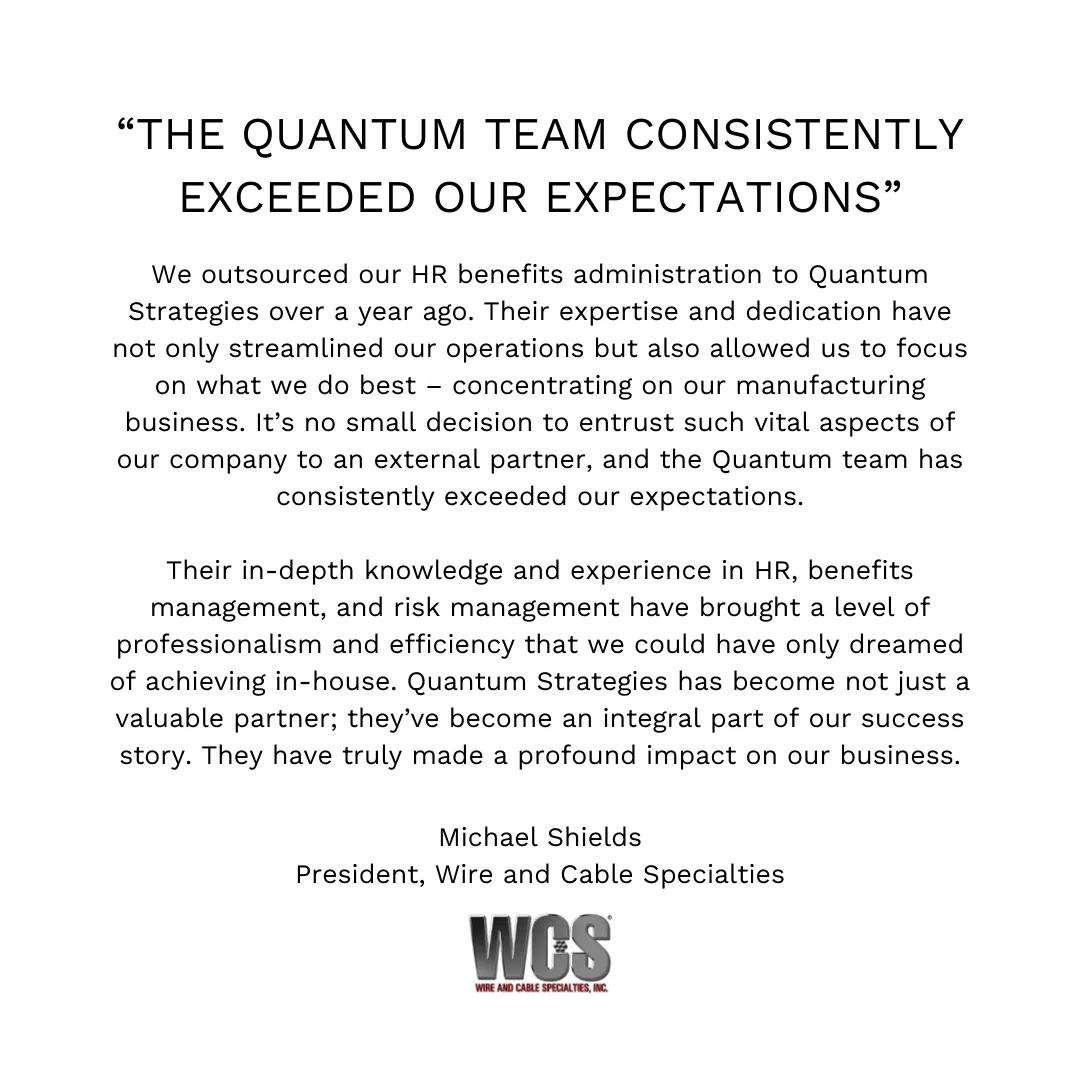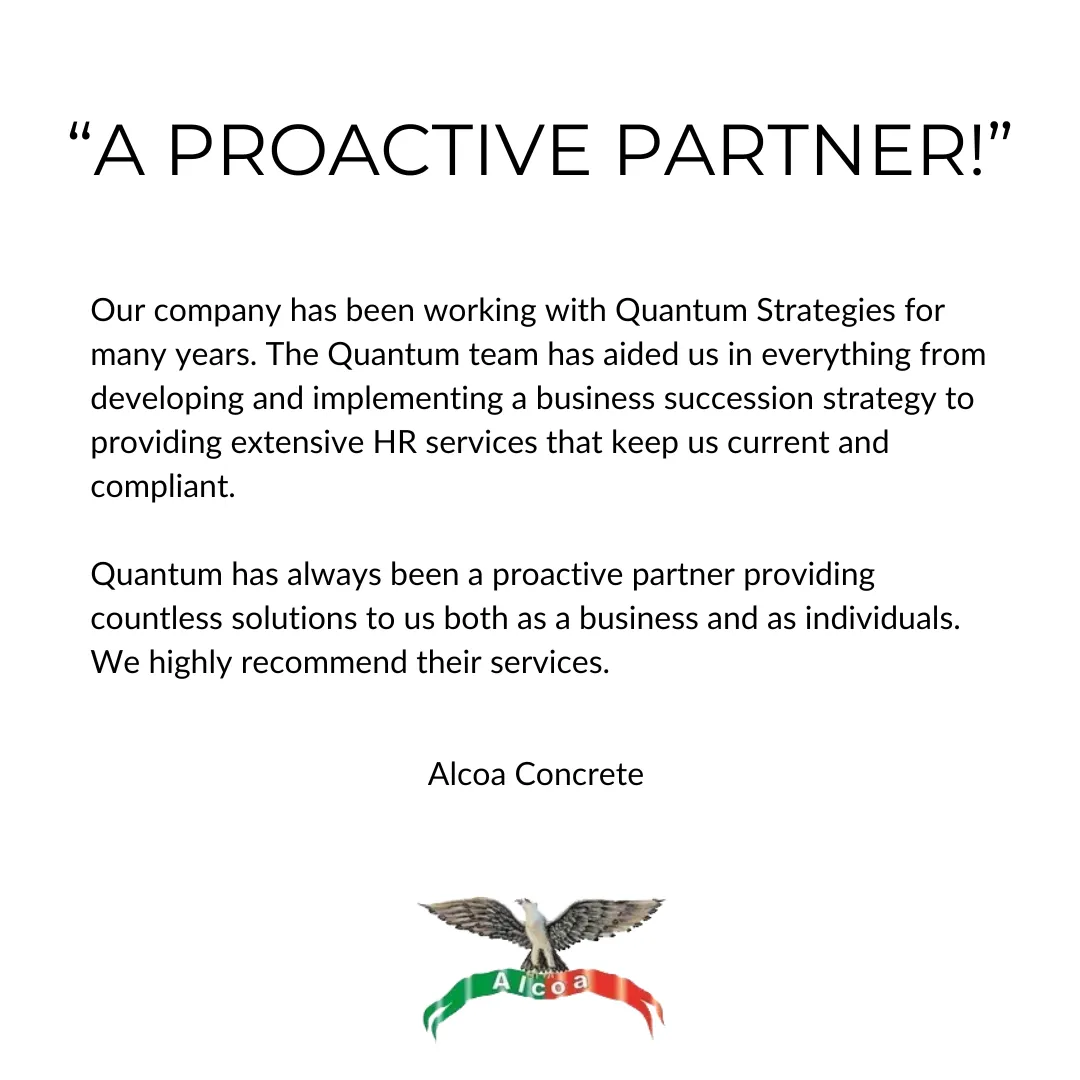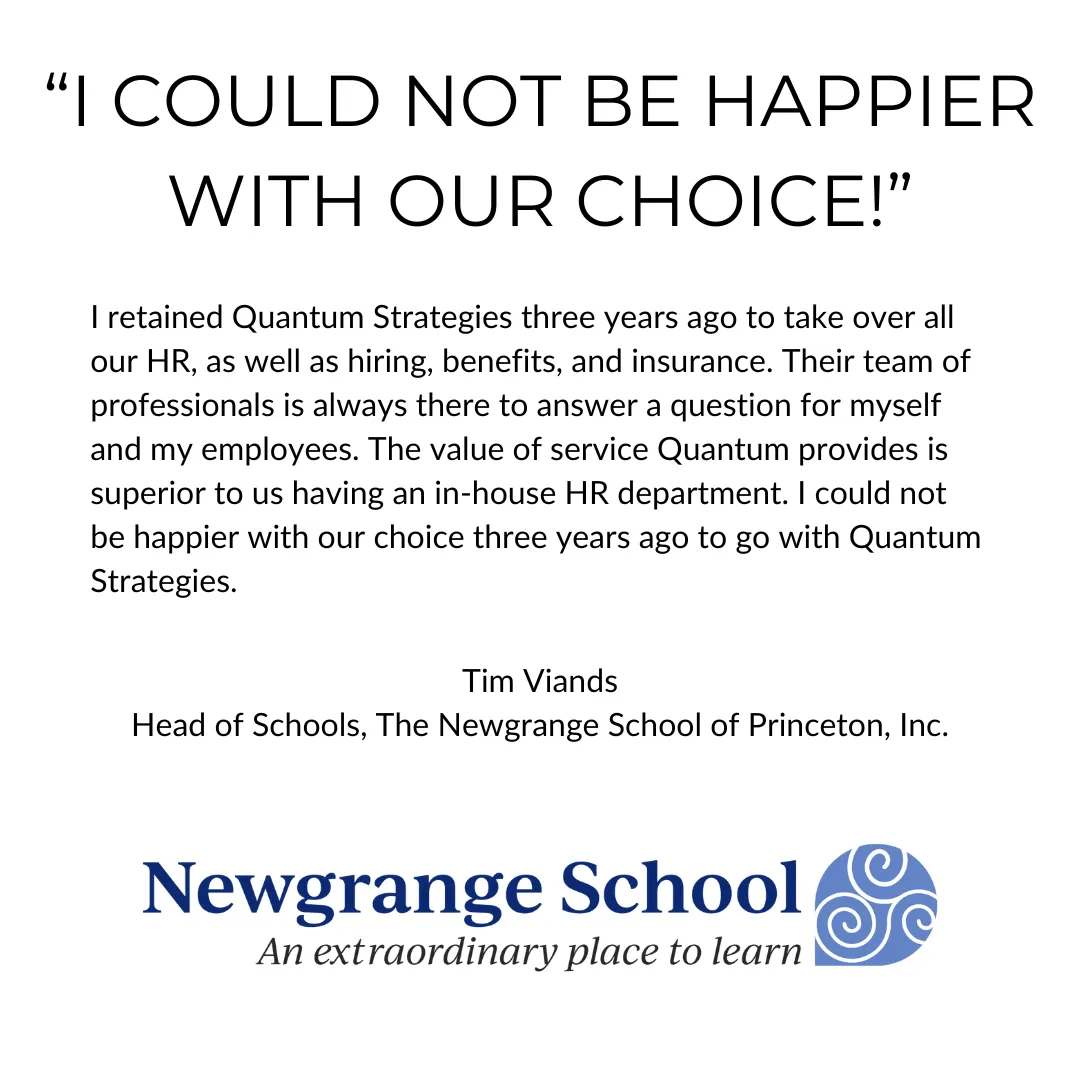Tailored HR Solutions as Unique as Your Business
Expert consulting and service to elevate your HR from a headache to a value driver.
Does Your HR Function Make the Grade?
Take our 5-minute quiz and evaluate the effectiveness of your HR function.

How We Help
We Focus on Your HR Needs,
So You Can Focus on Your Mission.
At Quantum Strategies, we understand that effective human resource management is the cornerstone of every successful business, regardless of size. Our mission is to provide tailored HR solutions that align perfectly with your unique business needs and growth stage.
Our Services
Navigating Change with Confidence: Quantum Expert HR Solutions
From Policy Assistance to Leadership Succession Planning, Quantum Strategies is Your Ultimate HR Resource to Solve Your Business Challenges.
HR Operational
Assessments
Unlock the full potential of your HR department. Our collaborative approach brings clarity and efficiency to your HR operations, providing a thorough analysis of your department's structure, costs, effectiveness, and needs.
Comprehensive Analysis: Detailed evaluation of your organization, workgroups, and individual roles for optimized efficiency.
Objective Insights: Receive a clear blueprint highlighting your HR department's strengths, weaknesses, and gaps.
Strategic Recommendations: Actionable plans focusing on technology utilization, communication enhancement, and leveraging department strengths.
HR Consulting and Managed Services
Tailored to align with your unique needs, our HR consulting and managed services enhance operational efficiency and effectiveness, allowing you to focus on your core mission while we optimize your HR investment.
Expert Supplemental Support: Strengthen your existing HR team with specialized expertise to navigate complex HR landscapes.
Personalized, Agile Solutions: Customized services for organizations with or without HR teams, adaptable to your specific requirements.
Goal-Oriented, Clear Communication: Delivering precise, actionable strategies that align with your organization’s goals and ensure successful execution.
Custom HRIS Design and Integration
Revolutionize your HR data management. Our team will evaluate your current human resources technology stack, offer recommendations, and then integrate your new and existing systems with our cutting-edge technology, ensuring seamless data flow and optimized operational efficiency.
Seamless Integration: Connect legacy systems with modern platforms for streamlined data management.
Tailored Design: Custom HRIS solutions uniquely crafted to meet your specific business needs.
Advanced Analytics: Leverage data-driven insights for strategic decision-making and operational excellence.
“Successfully steering through the specialized HR challenges within organizations of all kinds demands expert understanding, strategic planning, and precise implementation. With comprehensive knowledge of these challenges and the right solutions, your business can stay focused and successful in their vital missions.”
William J. Rizzo

Who we Are.
We Focus on Your HR Needs,
So You Can Focus on Your Mission.
At Quantum Strategies, we recognize that proficient management of human resources is fundamental to the success of any enterprise, irrespective of its scale. Our objective is to deliver customized human resource solutions that are in perfect harmony with your distinct business requirements and developmental phase.
Constant Improvement
Commitment to Customers
High Level Of Knowledge
Best Service You Can Get

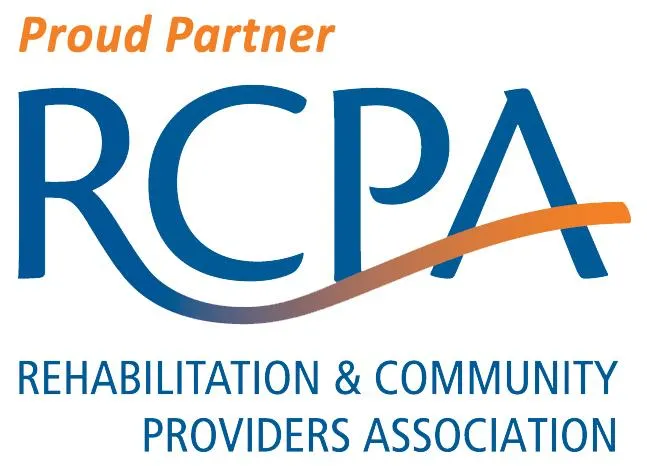
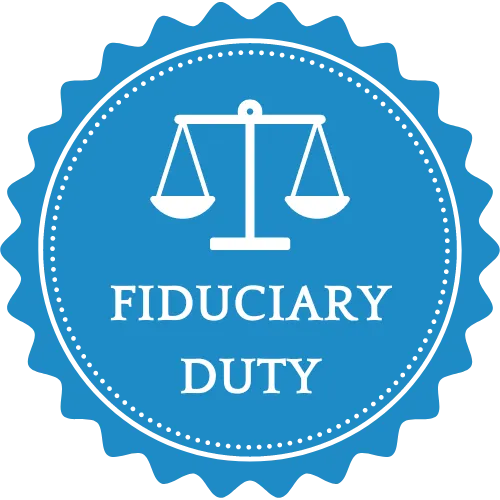
Why Choose Us
A True Partner to Solve Your Most Complex HR Challenges.
Empowering HR Innovation and Compliance
Commitment to 100% Client Satisfaction
People-First Approach

Peace of Mind:
Handle ongoing compliance with ease

Employee Satisfaction:
Build a positive workplace with engaged employees

Strategic Confidence:
Drive strategy with advanced analytics

Leadership Development:
Equip your team with the tools to lead

2,245 +
Happy Clients

25 +
Years Of Experience

120 +
Professional Team
Testimonials
The Quantum Commitment - 100% CLIENT SATISFACTION!
At Quantum, we understand that your satisfaction matters most, and The Quantum Commitment is our way of putting that understanding into action. Experience the difference with a team that is dedicated to making your satisfaction the cornerstone of our service. Because when you choose Quantum, you choose excellence, reliability, and a commitment to exceeding your expectations every time.
Our Resources
Unveiling Proven Strategies and Insights.
Discover actionable tips, expert advice, and industry insights to fuel your journey towards success.

Fostering a Psychologically Safe Workspace
As we navigate the complexities of the post-pandemic world, the importance of mental health in the workplace has surged to unprecedented levels. According to research from the
American Psychological Association, 81% of employees are now actively seeking workplaces prioritizing mental well-being.
Key Challenges Faced by Human Resources in Nonprofit Organizations
The nonprofit sector brings its own set of specialized difficulties, especially in the area of human resources (HR). Although these difficulties may share some common ground with those in the for-profit industry, they possess unique characteristics that require special attention from nonprofit leaders.
FOUND THESE HELPFUL?
Explore Additional Articles and Resources In Our Blog

Mastering Leadership: Key Traits and Lessons for Guiding Teams to Success
Introduction
Leadership is one of the most essential qualities that can make or break the success of any organization, team, or mission. While we often see leaders praised for their achievements, the true essence of leadership goes beyond just guiding a team to victory encompasses a mindset, a set of values, and the ability to steer a course through unpredictable situations. In this blog, we'll explore the key components of effective leadership, the lessons we can learn from great leaders throughout history, and how these insights can shape your approach in today's business world.
What is leadership?
This is a simple question with a complex answer. Leadership is a skill that can be learned through both experience and study. Throughout history, great leaders used similar leadership traits that brought them success in life, business, war, and politics. These leadership styles have remained constant throughout time and can be used in our lives today, especially in the business world.
It is easy to point out what leaders do to achieve success. However, it is a lot harder to understand the components that drive their action. Therefore, there lies a gap in our understanding of leadership. It is important to study the actions of great leaders and their mindsets, which nurture the accomplishment of goals under unpredictable circumstances. An article in the Harvard Business Review discussed a study done by Sunnie Giles. The study involved a total of 195 leaders in 15 countries from 30 global organizations who participated in a survey that asked the question, "What are the most important competencies in a leader?"
The top 5 answers were:
- High ethical standards
-The ability to provide goals with loose guidelines
-A clear communicator
-Flexibility
-Commitment to ongoing training

A high ethical and moral standard is the foundation of good leadership. A leader creates a fair and just environment, fostering mutual respect that drives creativity, hard work, and innovation within the team. Great leaders guide their teams toward success, empowering them to find their own way, rather than making all decisions themselves. These competencies—clear mindset, strong communication, trust, and flexibility—are key to building a collaborative, effective team.
While leadership is often viewed as a set of traits and actions, it also involves intangible factors that influence team dynamics. Leadership creates a positive energy in the workplace, which can be nurtured through practices like mindfulness, visualization, and the law of attraction. This positive energy, along with morale, vision, and motivation, spreads throughout the team, creating a productive and inspiring environment where everyone thrives.
All Responsibilities Lie on the Leader
Commonly, the difference between the candidates up for promotion is their ability to lead. Usually, in the first five to ten years of a person's career, promotion depends on the candidate's hard skills or ability to develop. Initially, the job is to carry the shared vision of a leader. As the candidates progress up the ladder, they see a gradual shift in focus. That candidate's duties will shift, and they will have to manage people.

Let's take a web developer as an example. The first position held by the web developer is usually to write code for the front end or back end of a system. After spending a few years working on multiple projects and showing potential, the developer will get promoted to team lead. Team leaders usually spend 70% of their time writing code and 30% of their time ensuring their team performs efficiently to achieve targets. The next promotion would be to a manager. As a manager, analyzing and improving code will still be part of the job, but now, the focus will mostly be managing people. As the employee moves higher up the ladder, their responsibilities will increase, but now it will be more focused on employees and clients who fall under them than worrying about the simple errors in the code.
In almost all areas of work, we slowly move from a skill-based job to a responsibility-based job. Responsibility-based employment, such as managing a team or planning a project, takes leadership skills. The leader is responsible for all successes and failures of the employees that he or she leads. As effective leaders, responsibility moves one step toward the people they oversee and makes the manager accountable for their team's actions. Some people can draw upon a combination of their innate ability and experiences to transition into a leadership role. Often, the new leader would benefit from leadership development training to ease their transition.
Acknowledging Mistakes and Admitting Failure
One of the most important personality traits for becoming a better leader is self-awareness, which is the ability to admit when he or she is wrong. Often, people blame outside factors like "the economy was bad," "my boss was not the greatest," or "the prospect was not able to understand the value that we were delivering to the organization." These types of thoughts are devastating to the growth of both the leader and the team. If you can be critical of yourself, you can identify mistakes earlier and take the necessary corrective actions to steer the organization towards these new ideas in a separate direction.

"Our greatest glory is not in never falling, but in rising every time we fall" - Confucius (Chinese Philosopher)
The best leaders can recognize their failures and use them as learning experiences to achieve even more remarkable accomplishments. If you fail to give yourself constant assessments of your plan, you could make the same mistakes repeatedly. Some of the best leaders in business and the military often faced hardships in their lives and careers. These leaders acknowledged their errors and made the right adjustments to get back on track toward success.
One of the greatest leaders in the auto industry, Lee Iacocca, moved up the ladder with Ford Motors with his strong vision and advanced leadership qualities. Unfortunately, he disagreed with Henry Ford's grandson, which led to his removal from the company. He thought his career was over, but Chrysler hired him, and Iacocca soon was responsible for launching a new product that changed the industry and saved Chrysler. This product was the Minivan, one of the most significant innovations in motor cars since the assembly line. Iacocca not only saved Chrysler from going out of business, but he also transformed the company, making it one of the most profitable car companies in the 1980s and 90s. Iacocca did not cry about his misfortune with Ford; he used that experience to grow and become an industry giant.

"Insanity: Doing the same thing over and over again and expecting different results." -Albert Einstein (Physicist, Nobel Prize Winner)
Decisive Leadership Saving Lives
On 5 August 2010, a massive cave-in at the San José mine in Chile trapped 33 miners’ deep underground. The collapse blocked the central tunnel and, soon after, the ventilator shafts, leaving the miners with no way to communicate with the outside world. Experts initially gave them just a 1% chance of survival, but the miners’ fate would ultimately depend on the leadership of Luis Urzúa, their line leader. With food and resources limited, the miners’ survival was uncertain, but Urzúa’s decisive actions would make all the difference.
Urzúa understood that waiting for rescue was not enough; he needed to ensure that the group could survive until help arrived. While many miners initially hoped for a quick rescue, Urzúa made the difficult decision to ration their limited food and water supplies to last for a longer period. This foresight proved crucial when it took 17 days for rescuers to locate the miners and send in provisions. By then, the miners were already running low on resources, but Urzúa’s careful planning kept them alive.
Beyond the practical decisions, Urzúa’s leadership was vital in maintaining the morale and discipline of the group. He kept the miners focused on what they could control, rather than the overwhelming odds against them. The team worked together to find fresh water, map their surroundings, set up a latrine, and manage the limited oxygen supply. Every action was part of a larger survival strategy, and Urzúa's insistence on cooperation and discipline ensured that the miners remained focused and united during their 69 days underground.
When the rescue finally came, it was a testament to Urzúa’s leadership and the miners' ability to work as a cohesive unit under extreme stress. Their survival was not simply a matter of luck but of careful planning, teamwork, and their relentless commitment to staying alive. Urzúa’s decision to focus on actionable steps, rather than on the dire odds of rescue, transformed a seemingly hopeless situation into one of triumph, demonstrating the power of leadership, discipline, and collective effort in the face of adversity.

Conclusion
Leadership is a multifaceted skill, blending innate qualities with learned experiences. It transcends mere actions and titles, requiring a deep understanding of ethics, good and open communication, flexibility, and trust. Great leaders not only guide their teams but also empower them to find their own paths to success. Leadership is about creating an environment where positive energy, collaboration, and accountability thrive. It demands self-awareness, the courage to admit mistakes, and the resilience to learn from failure. Whether leading a business, a military unit, or a life-or-death situation, effective leadership involves not only making decisions but also inspiring discipline and unity in the face of uncertainty. Leaders who focus on what they can control—rather than the unpredictable outcomes—are the ones who foster true success and progress.
Ready to enhance your leadership skills and drive your team to success? Contact us here today to learn how we can help you develop the leadership strategies you need for your business.
Connect
Keep Up with Our Latest News and Insights
Subscribe to Quantum Strategies' latest updates and insights.
Office: Philadelphia, PA | Glen Mills, PA | Washington, DC
Call 610.624.1770
Email: info@QS2500.com
Site: www.QS2500.com

